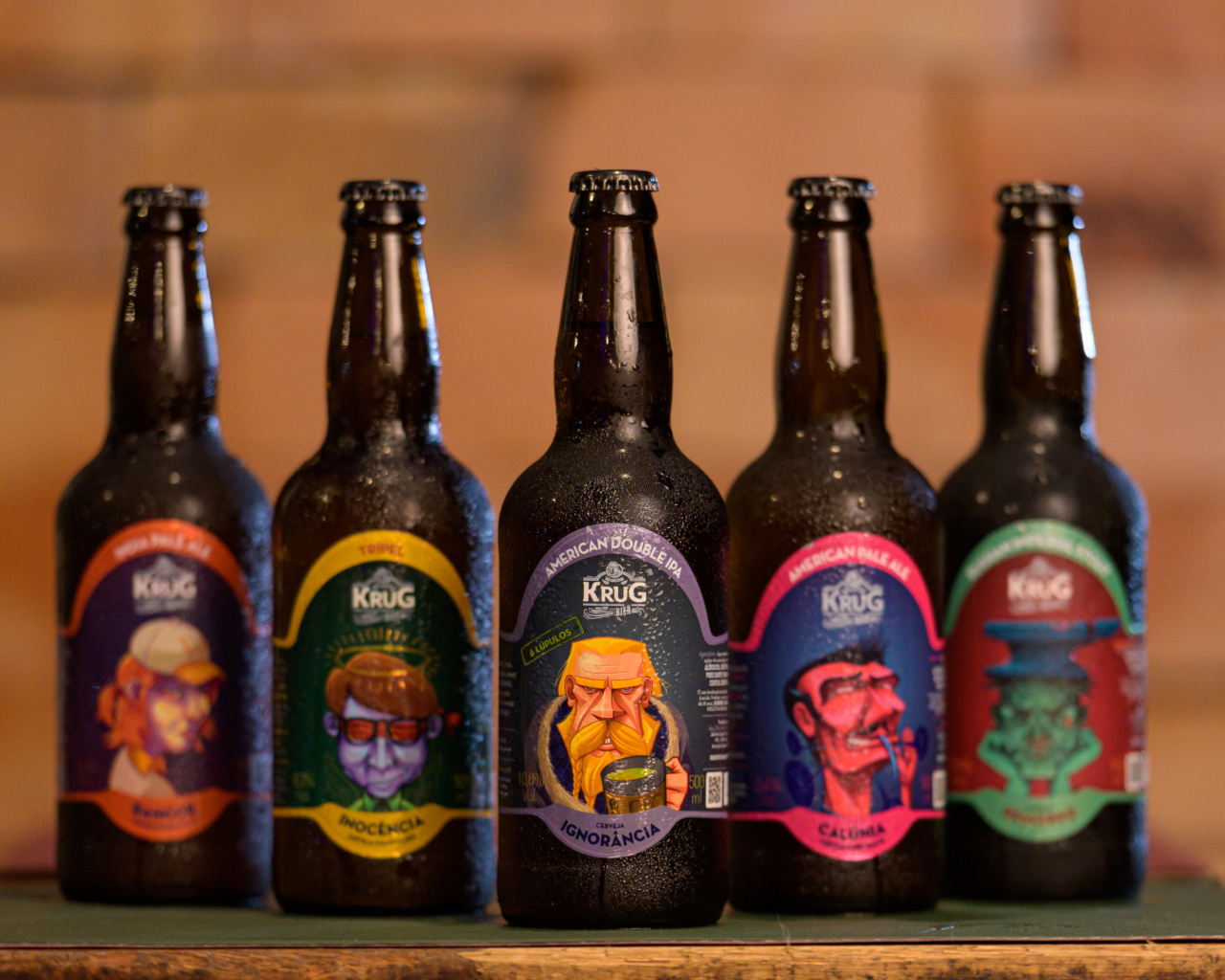For many people, enjoying a drink or two is a regular part of socializing and unwinding after a long day. However, for individuals with allergies, consuming alcohol can have unpleasant side effects.
While allergies to alcohol itself are rare, various components found in alcoholic beverages can trigger allergic reactions in susceptible individuals. In this article, we explore the reasons why alcohol could be triggering your allergies.
1. Sulfites in Wine
One of the most well-known culprits behind alcohol-induced allergic reactions is sulfites, which are commonly found in wine. Sulfites are a group of compounds that act as preservatives in various food and beverage products, including wine.
They help to prevent spoilage and maintain freshness.
However, sulfites can trigger allergic reactions in some individuals, causing symptoms such as difficulty breathing, hives, and even anaphylaxis in severe cases.
Wine with higher levels of sulfites, such as white wine, is more likely to cause an allergic response compared to red wine.
2. Histamines in Wine
In addition to sulfites, histamines present in wine can also be a trigger for allergies. Histamines are chemicals released by the immune system during an allergic reaction. They cause inflammation and other symptoms associated with allergies.
While histamine levels in wine can vary, red wine tends to have higher amounts compared to white wine. Therefore, individuals with allergies may experience symptoms like congestion, headaches, and skin redness after consuming red wine.
3. Wheat and Barley in Beer
Beer is a popular alcoholic beverage enjoyed by many. However, for individuals with gluten allergies or sensitivities, consuming beer can lead to allergic reactions.
Beer is typically made from ingredients like barley and wheat, both of which contain gluten.
Gluten is a protein that triggers an immune response in individuals with celiac disease or non-celiac gluten sensitivity. Symptoms of a beer-induced gluten allergy can include abdominal pain, nausea, diarrhea, and skin rashes.
4. Hops in Beer
Besides gluten, hops used in the production of beer can also contribute to allergic reactions. Hops are the flowers of the hop plant and are responsible for the bitterness and aroma in beer.
Some individuals may be allergic to certain compounds present in hops.
Beer allergies associated with hops can cause symptoms such as nasal congestion, itching, and even asthmatic reactions.
Switching to gluten-free beer varieties or beverages without hops can help individuals with these allergies enjoy alcohol without triggering their symptoms.
5. Yeast in Fermented Drinks
Yeast is responsible for the fermentation process in alcoholic beverages like wine, beer, and spirits. While yeast itself is not a common allergen, some individuals can be allergic to specific proteins found in yeast.
Allergies to yeast can result in symptoms like skin rashes, itching, and digestive issues.
Choosing wine that has undergone a secondary fermentation process, which reduces the yeast content, may help prevent allergic reactions in yeast-sensitive individuals.
6. Additives and Flavorings
In addition to naturally occurring substances, additives and flavorings in alcoholic beverages can also trigger allergic reactions. Some common additives include artificial colors, sulfites, and flavor enhancers.
Artificial colors, particularly those derived from coal tar, have been known to cause allergic reactions in susceptible individuals. Sulfites, as mentioned earlier, can be an allergen for some people.
Certain flavor enhancers, such as monosodium glutamate (MSG), can also trigger allergic symptoms in certain individuals.
7. Cross-Reactivity with Pollen Allergies
Individuals with pollen allergies may experience allergic reactions to certain alcoholic beverages due to cross-reactivity.
Cross-reactivity occurs when the proteins in one substance resemble the proteins in another substance, causing the immune system to react to both.
For example, individuals with birch pollen allergies may find that consuming certain fruits, such as apples, peaches, or cherries, triggers allergic reactions. This is because the proteins in these fruits are similar to the proteins in birch pollen.
Similarly, consuming certain alcoholic beverages, such as wine or beer, can elicit allergic responses in individuals with pollen allergies. This phenomenon is known as oral allergy syndrome.
Symptoms may include itching and swelling of the lips, mouth, and throat.
8. Alcohol Intolerance
While not strictly an allergy, some individuals may experience adverse reactions to alcohol due to alcohol intolerance.
Alcohol intolerance is caused by the deficiency of an enzyme called aldehyde dehydrogenase, which is responsible for breaking down alcohol in the body.
Common symptoms of alcohol intolerance include flushing, headaches, rapid heartbeat, and nausea. These symptoms can be mistaken for an allergic reaction, but they are a result of the body’s inability to metabolize alcohol effectively.
9. Interaction with Medications
Alcohol can potentially interact with certain medications, leading to allergic-like reactions. Some medications, such as antibiotics, antihistamines, and pain relievers, can have adverse effects when combined with alcohol.
These interactions can range from minor side effects such as drowsiness and dizziness to more severe allergic reactions.
It is essential to consult with a healthcare professional or pharmacist to understand the potential interactions between your medications and alcohol.
10. Individual Sensitivities and Allergies
Lastly, individual sensitivities and allergies can contribute to alcohol-triggered allergic reactions. People can be allergic or sensitive to various substances, including those commonly found in alcoholic beverages.
It is crucial to be aware of any known allergies or sensitivities you may have and to read labels carefully when selecting alcoholic beverages.
Opting for alternatives or lower-risk options can help individuals enjoy alcohol without triggering their allergies.
Conclusion
While allergies to alcohol itself are rare, the various components present in alcoholic beverages can trigger allergic reactions in susceptible individuals.
Sulfites, histamines, gluten, yeast, hops, additives, and cross-reactivity with pollen allergies are some of the reasons why alcohol could be triggering your allergies.
Understanding and identifying the specific triggers can help individuals make informed choices and find alternatives that suit their needs.
If you suspect that you have allergies to certain alcoholic beverages, it is advisable to consult with a healthcare professional or allergist for proper diagnosis and guidance.





























